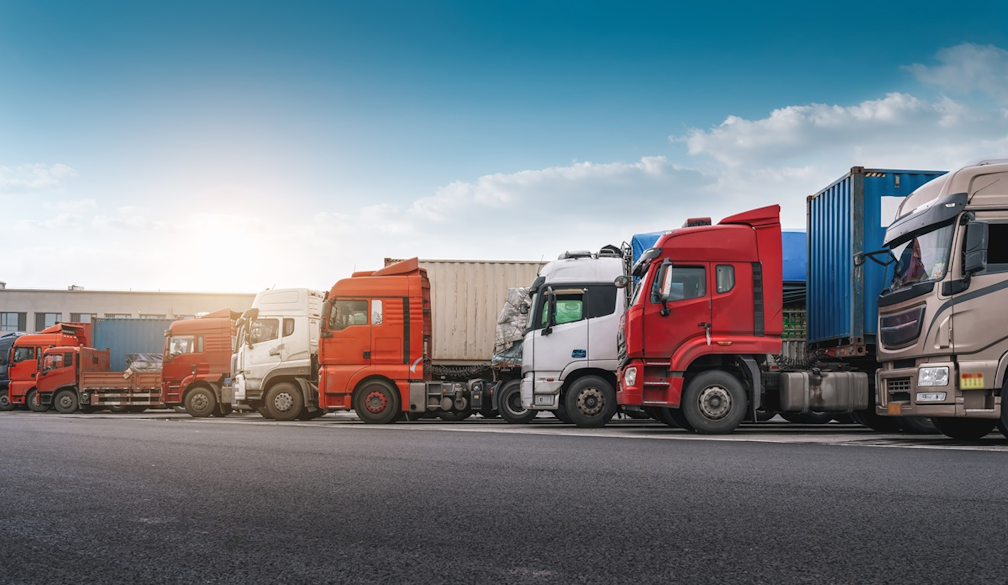Fleet Safety Management: Best Practices for Accident Prevention

Whether you run a small delivery company or manage a vast network of trucks, the stakes are high when it comes to fleet vehicle safety.
Accidents involving your fleet can lead to devastating consequences, from serious injuries to costly repairs, skyrocketing insurance premiums, and even damage to your company’s credibility. In fact, a single workplace injury can set you back more than $100,000.
The good news is that accident prevention is very much achievable. With the right fleet safety management strategies in place, fleet operators can drastically reduce the chances of accidents and improve overall safety.
We’ll be discussing a few essential strategies for minimising the risk of accidents and promoting a culture of safety within your fleet.
Fleet Management Practices That Can Minimise the Possibility of Accidents
Here are some of the best fleet safety management practices for accident prevention:
Comprehensive Vehicle Inspections and Maintenance
The overall safety starts with the vehicle. One major cause of accidents is when vehicles break down or have problems, like brake failure or engine trouble. To avoid this, you need to have a routine to inspect and maintain every vehicle in your fleet. Research shows that about 35% of truck accidents are caused by brake issues, so checking things like brakes, tyres and the engine can prevent accidents.
As a fleet owner or manager, it is your core duty to make sure that each vehicle gets checked before and after every trip. Your drivers should be trained to spot problems as well. They should be able to detect low tyre pressure or worn brake pads so they can report them immediately. A small problem that’s caught early could stop a fatal accident later.
Older vehicles or those that break down a lot are more likely to get into accidents. While older vehicles might seem cheaper at first, the cost of repairing them can be significant when added up. Sometimes, it’s just a smarter choice to replace older vehicles instead of constantly fixing them. This way, you would be absolutely compliant with the heavy vehicle regulations in Australia.
Another great tool to use is dashcams. These cameras record everything that happens on the road. They help discourage risky driving and give you information you can use to see where drivers need to improve. Dashcams can cut accidents by as much as 60%, saving you money on insurance and helping to hold drivers accountable.
Intensive Driver Training and Screening
Even the best vehicles can be involved in accidents if the drivers aren’t trained properly. To reduce accidents, you need a strong training program that goes beyond teaching basic road rules. It should include defensive driving, knowing how to handle bad weather, and avoiding distractions.
You can start by making sure your drivers know the danger zones along their routes. This will help them stay aware of potential hazards. Furthermore, you would need a full safety program that encourages safe driving every day. You can reward good driving habits and make it clear that unsafe driving won’t be tolerated.
Fatigue is another major issue that cannot be ignored. When drivers are tired, their reaction time slows, and they make poor decisions. That’s why it’s important to meet the work and rest requirements in Australia, which limit how long drivers can be on the road. If your fleet is often overloaded with tight schedules, you should consider adding more drivers or vehicles to help.
And also, driver training shouldn’t stop after the first lesson. The roads change every day, and so do the risks. Regular training will keep your drivers sharp and ready to handle anything.
Using Technology to Maintain Safety
Technology has changed how fleets are managed, and using the right tools can make your fleet much safer.
GPS tracking and telematics allow you to monitor vehicle performance, track driving habits and gather data on things like how fast drivers are going, how hard they brake, and how long they idle. This data helps you make smart decisions about which drivers need more training or if a vehicle needs maintenance.
With fleet management software, you can keep an eye on your vehicles from anywhere. There are different software tools that track vehicles and detect accidents. These apps can help you spot risky driving and take action right away. It also allows you to reward safe driving and address unsafe habits.
Another key tool is having a clear process for handling accidents. This will make sure that if something happens, drivers know exactly what to do and can report it quickly.
An accident management system that is available on mobile can help drivers report accidents as soon as they occur. With this in place, fleet managers would have the opportunity to spring into action as soon as possible.
When fleet managers analyse the data from accidents, they can find patterns and see where improvements are needed. For example, if accidents tend to happen on certain routes or in specific weather conditions, you can take steps to prevent them in the future. This process helps improve your safety program over time.
Summing up, the importance of a robust fleet safety management system can’t be ignored in this fast-paced age. As a savvy fleet manager, you must look for suitable options and embrace technology to prevent accidents and streamline your day-to-day operations.
Also Read: How Electronic Logbook App Simplify Compliance with Fatigue Laws
















